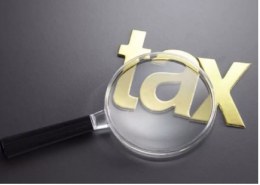1.Every person whose aggregated income exceeds the basic exemption limit. While calculating the aggregated income, He can get various deductions available under chapter VIA, which comprises mainly Section 80C, 80 CCD, 80D, 80TTA, 80 TTB etc. Examples of these deductions are: life insurance premium/Read more
1.Every person whose aggregated income exceeds the basic exemption limit.
While calculating the aggregated income, He can get various deductions available under chapter VIA, which comprises mainly Section 80C, 80 CCD, 80D, 80TTA, 80 TTB etc.
Examples of these deductions are:
- life insurance premium/Health insurance premium
- Contribution towards EPF/ PPF and NPS accounts
- Interest from banks
- Tuition fee for children
- Repayment of home loans etc.
2. Apart from that any private or public company based out of India or doing business in India, firms, Hindu Undivided Family (HUFs), Association of Persons (AOP), Body of Individual (BOI) etc. are also liable to file ITR.
See less


1 july 2017
1 july 2017
See less